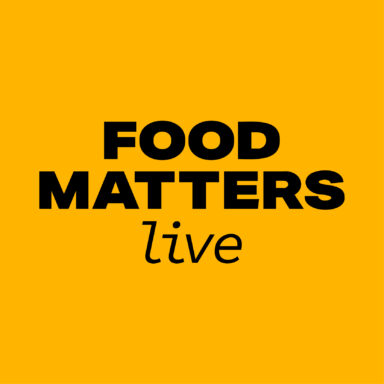Your complete guide to food chemistry courses in the UK

Food chemistry is a subject which primarily deals with the chemical structure and properties of food. These courses also study the chemical changes which food undergoes under a variety of conditions. This helps to develop the skills for food quality-checking roles within the industry.
As food is prone to decomposition, a food chemist’s role is therefore essential to help develop solutions for extending the shelf life of foods, avoiding spoilage and limiting food waste.
The role of a food chemist includes the analysis of heat processing methods, canning, freezing, and packaging. Students will study the effects of processing on food and beverages by looking at the appearance, taste, aroma, freshness, and nutritional content of food.
Students can expect to study a broad range of food subjects, such as:
- Basic scientific principles
- Food systems
- Practical applications within the food industry
- Chemical composition of foods
- Biomolecules
What can you expect from food chemistry courses?
The following food chemistry courses are specially designed to enable students to build their careers within the food industry – specifically as a food chemist or another related role.
They are designed to enable learners to enhance their knowledge and understanding of the food chemist role, and how vital it is to our modern way of life in terms of not only prolonging the shelf life of a wide range of foods but enhancing their flavours and nutritional values.
The following courses also involve a wide range of assessment methods to determine your final grade. These include written reports, presentations, team-based projects, exams, and dissertations.
Food Chemistry BSc
This food chemistry course is devoted to the development of diverse strategies which meet the growing need for healthy food and security around the world. In order to achieve this, the contents of this course include learning from a number of disciplines, such as life sciences and natural sciences.
It is worth noting that BSc in Food Chemistry is not typically offered on its own in the UK, but those who are interested in the subject can take a BSc in Food Science which will also introduce them to food chemistry.
During this course, students can expect to enhance their understanding of the fundamentals of inorganic and organic chemistry, biochemistry, and analytical chemistry. This learning is also supported by role-specific specialisation towards the food chemist job and microbiology.
This course typically adheres to the following structure:
- The first two semesters convey fundamental knowledge of the natural sciences.
- From the third semester onwards, the program specialises in your knowledge of food chemistry and associated methodologies.
- Learning can be complemented by elective modules.
- The program concludes with the bachelor’s thesis.
BSc courses in Food Chemistry are available abroad, mostly in Germany, at the Technical University of Munich, the Justus-Liebig University Giessen, and at McGill University in Montreal, Canada, where the course is taught as Major as part of the Bachelor of Science (Food Science) degree. It is worth noting that not all of these courses may be available in English.
Food Science BSc (Hons)
Develop your knowledge and expertise to meet consumer demand for safe and sustainable food products with this food chemistry course – the ideal way for enhancing your employability within the food industry.
Through this bachelor’s degree, students will enhance their understanding and knowledge of critical food production processes within the industry. This includes tackling topics like food microbiology, product development, biochemistry and engineering, and human physiology.
You’ll also have the opportunity to access work experience and extensive scientific facilities dedicated to food science; enabling you to engage in more diverse learning and research.
Core modules include:
- Introductory microbiology
- Molecular studies for the life sciences
- Farm to fork
- Fundamental biochemistry in food and nutrition
- Introduction to food processing and engineering
- Introduction to food microbiology
- Introduction to human physiology and nutrition
- Composition, properties and analysis of foods
- Food processing
- Food quality and sensory science
- Microbiology of food spoilage and preservation
- Microbiological hazards in foods
- Nutritional science
- Industrial training preparation
- Advanced food chemistry
- Advanced food quality, safety and sensory
- Food product development
Food Science and Nutrition BSc (Hons)
This food chemistry degree is multidisciplinary, mixing topics from chemistry and biology and their relation to food.
During this course, you will develop your knowledge of a wide variety food-related topics which will help you to build your understanding of food chemistry.
You will also develop knowledge around what happens to food when it is processed and in storage, as well as the role food microbiology plays in the production of safe and nutritious food.
This food chemistry course also enables students to critically evaluate how natural and added components operate in the foods we eat, helping to build your understanding on what processes and technologies are used within the food industry and how they work.
Core modules include:
- Biochemistry: the many molecules of life
- Cell biology
- Food science and nutrition
- Principles of nutrition and health
- Biochemistry: building blocks of life
- Introduction to principles of physiology and practical skills
- Key skills for nutrition and dietetics
- Practical explorations in food science and nutrition
- Food microbiology
- Food science: perception, processing and preservation
- Human nutrition
- Nutritional physiology & metabolism
- Food analysis and quality control
- New product development
- Food: chemistry, functionality and health effects
- Research methodology for nutrition and exercise
- Food security
- Food technology and safety
Food Chemistry MSc
This food chemistry course allows students to deepen and broaden the essential competencies which are required for a career within food chemistry.
The goal of this master’s course is to help you consider how to develop sustainable food strategies for making healthy, safe and sustainable food accessible globally. The course has a wide scope, looking at the supply chain from production to preparation, processing, and packing.
The core focus of this food chemistry course is the enhancement of knowledge of the substances which are generated during the food processing part of the supply chain. This includes the analysis of these substances on a molecular level to address how the molecular structure of food can be influenced by targeted interventions.
By the end of this course, students will have a deep and detailed knowledge of relevant fields within the food industry to propel their careers in food chemistry.
As with the BSc in the same subject an MSc in Food Chemistry is not currently offered at most UK universities. The majority of student who want to engage in further study in this field can usually study similar topics with an MSc in Food Science.
MSc courses in Food Chemistry are available abroad mostly in Germany, at the Technical University of Munich, the University of Hohenheim, and the University of Vienna in Austria. As a result, they may not all be taught in English.








